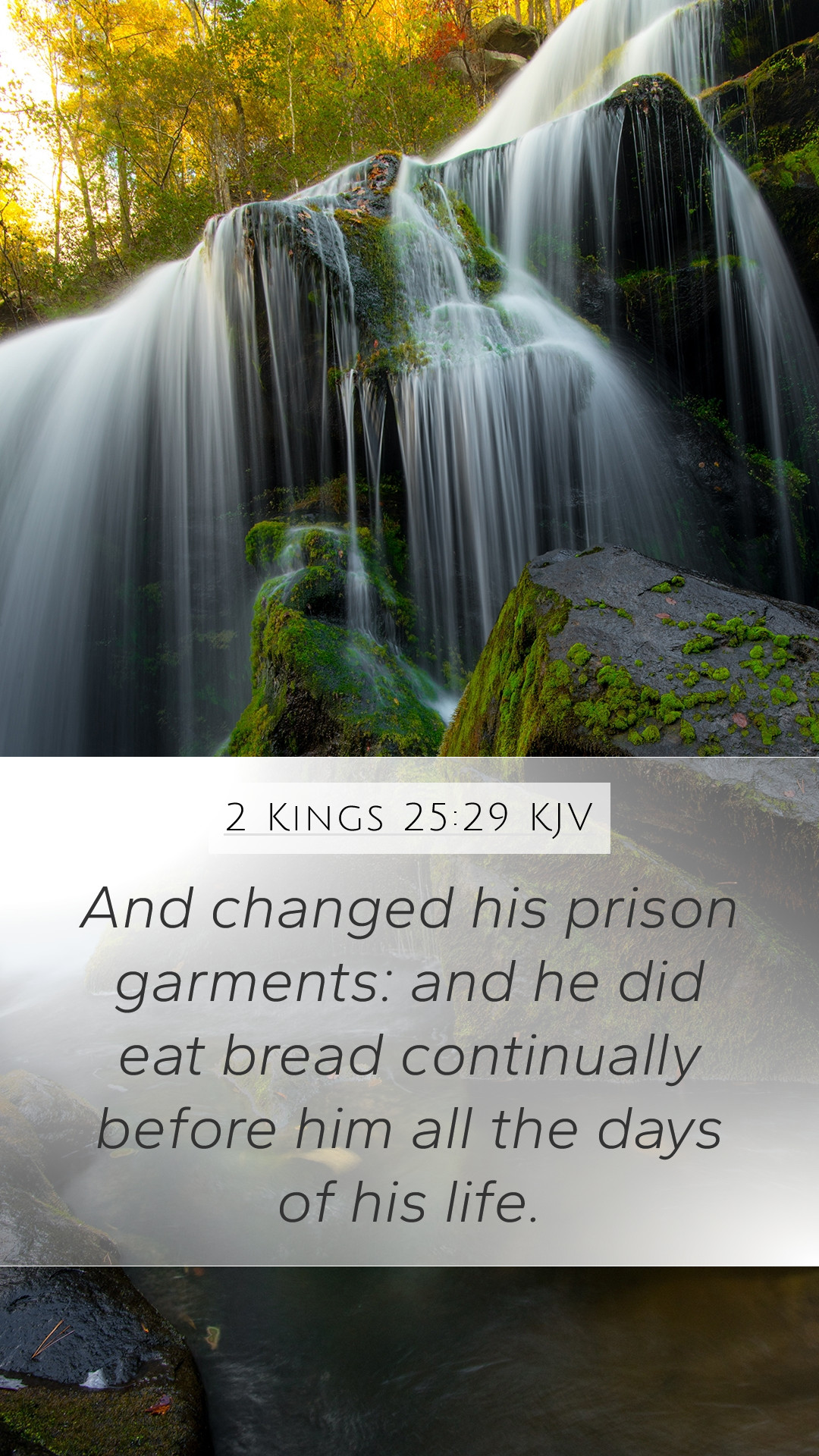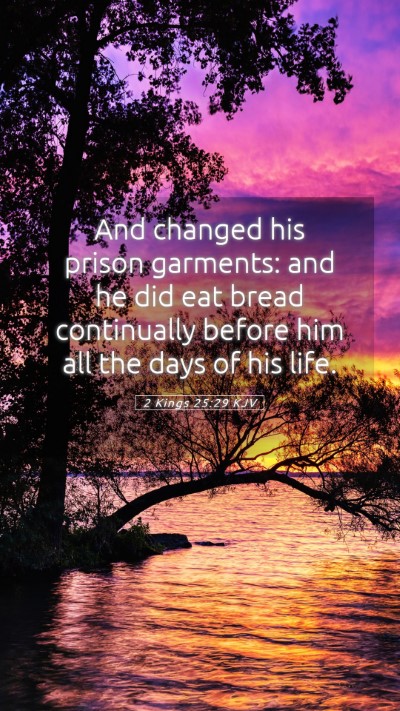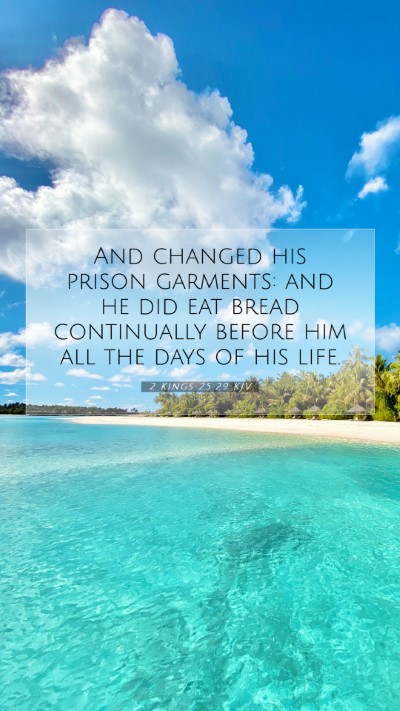Understanding 2 Kings 25:29
Bible Verse: 2 Kings 25:29 - "And changed his prison garments: and he did eat bread continually before him all the days of his life."
Overview:
This verse concludes the account of Jehoiachin's captivity in Babylon. It portrays a moment of significant transition—from captivity to a semblance of restoration, emphasizing themes of grace, mercy, and divine providence.
Insights from Public Domain Commentaries
Matthew Henry's Commentary
Matthew Henry emphasizes the idea of restoration in this verse. After years of imprisonment and hardship, Jehoiachin is elevated to a higher status in Babylonian society. This change in his garments symbolizes a change in his circumstances and prestige.
- Henry draws attention to the divine hand in Jehoiachin’s fate, suggesting that despite the circumstances, God’s will remains overarching.
- He notes the significance of Jehoiachin “eating bread continually” as a sign of sustenance and care from the Babylonian king, which illustrates the theme of God's provision even in exile.
Albert Barnes' Notes
Albert Barnes focuses on the historical context of this event, noting that Jehoiachin was appointed by the Babylonian king as a figurehead. This was likely intended to placate the Jewish population and indicate a degree of favor.
- Barnes elucidates that the change of garments indicates a shift from the humiliation of imprisonment to a more dignified status.
- He also suggests that this continuous provision of bread indicates that Jehoiachin was no longer viewed merely as a prisoner, but as someone with a purpose—even within captivity.
Adam Clarke's Commentary
Adam Clarke provides details on the symbolic meaning of the garments, interpreting the change as a deeper metaphor for spiritual renewal and hope even in desperate circumstances.
- Clarke emphasizes that God’s mercy is often revealed in unexpected ways, showing how, despite Jehoiachin's failure as king, he is not abandoned by God.
- His analysis of “eating bread continually” suggests that Jehoiachin receives sustenance both physically and spiritually, representing hope for rehabilitation and future restoration.
Thematic Analysis
This verse encapsulates several vital themes worth exploring:
- Grace and Mercy: Despite Jehoiachin's past failures, he experiences God’s grace through restoration and sustenance.
- Transformation: The change in garments represents a shift in identity and purpose, paralleling the transformative themes present throughout Scripture.
- Providence: God’s hand is evident in Jehoiachin’s life, signifying that divine providence can prevail in the bleakest of circumstances.
Cross References
This verse relates to the following scripture passages that enhance the understanding of its themes:
- Jeremiah 52:31-34 - Discusses the release of Jehoiachin and his elevation in Babylon.
- Isaiah 40:1-2 - Addresses the themes of comfort and restoration after hardship.
- Psalm 102:13-16 - Speaks to God's favor upon Zion and restoration of the exiles.
Conclusion
2 Kings 25:29 is a powerful reminder of God’s overarching sovereignty and mercy. In reflecting on Bible verse meanings and interpretations, this verse teaches believers about hope, renewal, and the unwavering presence of God in every circumstance. It encourages readers to delve deeper into biblical studies and engage with Scripture for profound insights.
For those seeking Bible verse commentary, this verse serves as an excellent example of how historical context and spiritual truth intertwine, inviting all into a deeper understanding of Scripture.


